
Both brick-and-mortar and online businesses can offer their customers safe ways to pay with credit cards or digital wallets through online payment gateways.
Technology is opening up various payment options and marketplaces, resulting in the need for payment gateways to help grow businesses.
Digital payment systems, like PayPal, are making it easier for customers to buy products without hassle. Together, Millenials and Gen Z purchased $350 billion worth of goods and services in 2018.
By 2015, Gen Z alone made up 40% of global consumers, increasing the demand for merchants to cater to this growing demographic.
Table of Contents
In essence, a payment gateway encrypts customer credit card information and sends it to the issuing bank for verification when customers make purchases online or in stores. Whether a customer’s purchase is approved or declined is determined by this transaction.
Nonetheless, a payment gateway does not constitute a merchant account. Merchant accounts are what companies or merchants need to accept credit card payments (like PayPal). In some cases, payment gateway providers also offer merchant accounts as part of their services. However, most payment gateways operate independently.
For this writing, we examined a number of payment gateways based on several factors, including the type of payment, cost, ease of use, integrations, and support. These are our top 7 picks.

The oldest payment gateway provider on the market, Authorize.Net, was established in 1996. Currently, it manages over one billion transactions per year and serves more than 430,000 merchants.
The best part is that it is simple to use and set up, accepts transactions from all over the world, and works with almost any merchant account.
Because of its longevity, Authorize.Net has established partnerships with most merchant account providers, which allow its users to accept a variety of payment methods from major credit cards, debit cards, and digital payments, in addition to e-checks and foreign payments.
With an easy-to-use platform, Authorize.Net is perfect for new sellers as well as experienced users. PayPal is also one of the very few payment gateways that accept more payment types than most others.
By using the Authorize.Net payment gateway, your existing merchant account can be used. As well as offering an all-in-one merchant account, the company also offers a payment gateway.
Besides recurring payments and invoicing, both options provide customers with customer information management, fraud prevention filters, mobile payments, a virtual point-of-sale (POS) system, and a card reader.
Furthermore, both Authorize.Net plans offer recurring payments for no additional fee and the option to accept electronic checks for an additional fee. Neither plan requires a setup fee.
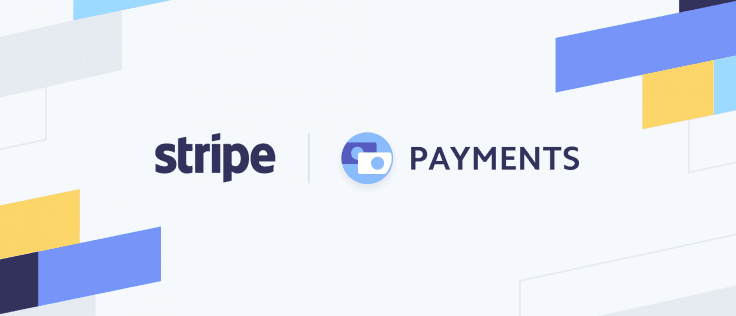
Stripe, launched in 2011, is a payment gateway provider that is heavily invested in technology and development. In the U.S., 90 percent of online shoppers buy from businesses using Stripe.
The company employs more than 4,000 people in 14 countries. It ranked as runner-up because it offers competitive rates and customizable payment options.
Because Stripe’s products are developer-driven, they allow companies of all sizes to grow and scale as well as to tailor them to their needs.
Using Stripe’s native integrations for existing eCommerce platforms such as WooCommerce, Shopify, Wix, Squarespace, and BigCommerce, business owners can design the platform they want and take full advantage of its features.
With Stripe, you can enjoy a number of the benefits of a global payment gateway, including 135 currencies, multiple payment types, mobile payments, subscription billing, one-click checkout, and a user dashboard with details about transactions.
Despite the fact that Stripe is primarily known for its e-commerce payment gateway, it does provide a virtual point of sale so that users can unify their online and offline sales channels.
Besides being compatible with chip cards and contactless payments, Stripe Terminal works on mobile devices and computers.
As opposed to Authorize.Net, Stripe is free to use. Furthermore, it provides 24/7 phone, email, and chat support and an extensive online help center. In addition, Stripe provides a custom pricing option for customers.
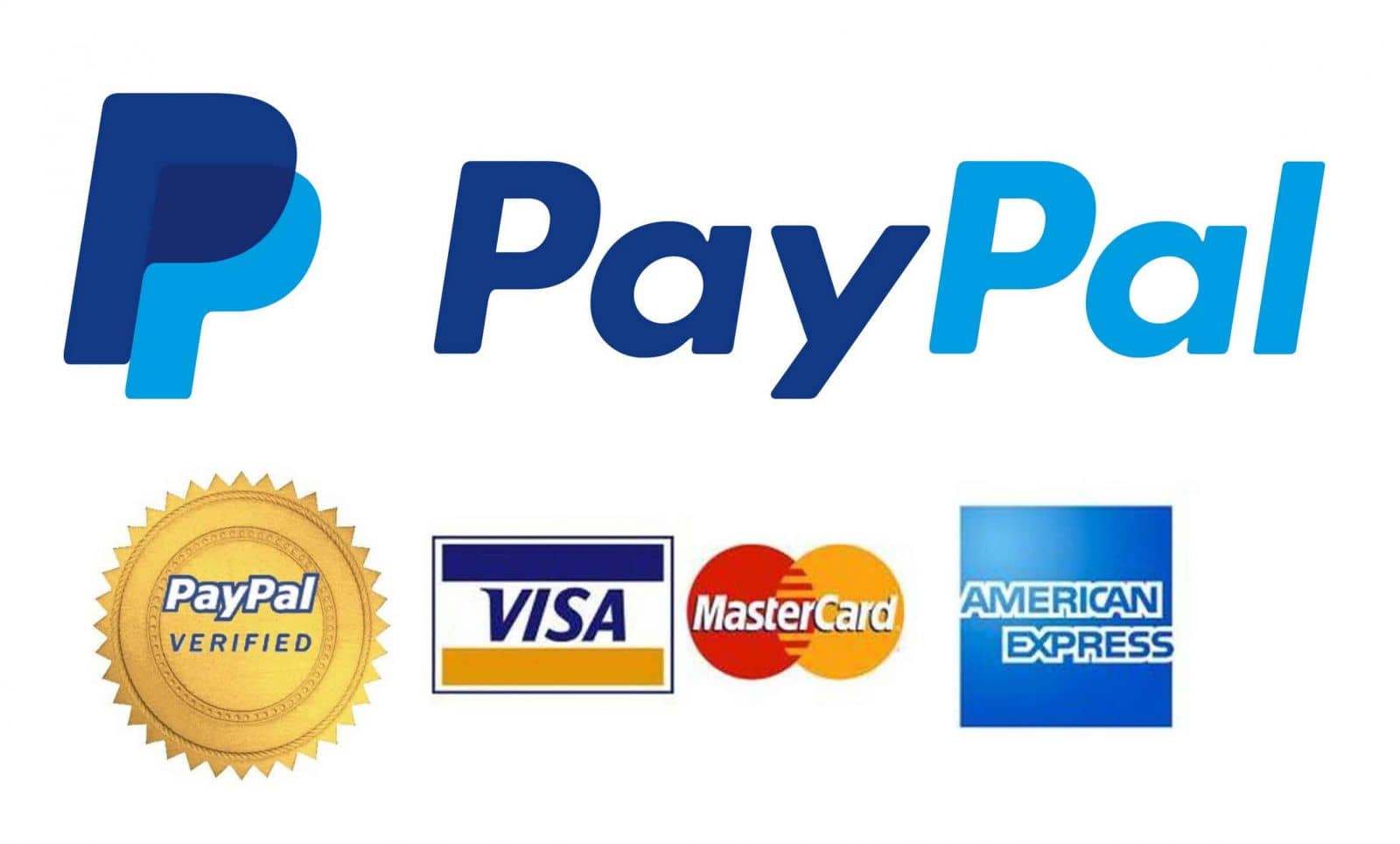
In 1999, PayPal was created as a digital wallet, which was acquired by eBay in 2002. Since then, PayPal has evolved into one of the most capable and widely recognized methods of processing payments online.
Choosing it as the best option for online businesses is due to the fact that customers can pay with PayPal as well as most other payment types, all at competitive rates.
Due to its trustworthiness and widespread use, PayPal claims it is able to increase checkout conversions by 44% when customers select PayPal as their payment option. The process of adding PayPal is also very straightforward. Simply create an account and add the “Pay by PayPal” button to your website.
Users who wish to use PayPal’s advanced payment and checkout features will need to subscribe to PayPal Payments Pro. By doing so, you will be able to accept American Express, Visa, Mastercard, Discover, and PayPal Credit payments.
You can also integrate credit card payments, online invoicing, and in-person payment processing with major e-commerce platforms such as Shopify, Squarespace, BigCommerce, and WooCommerce.
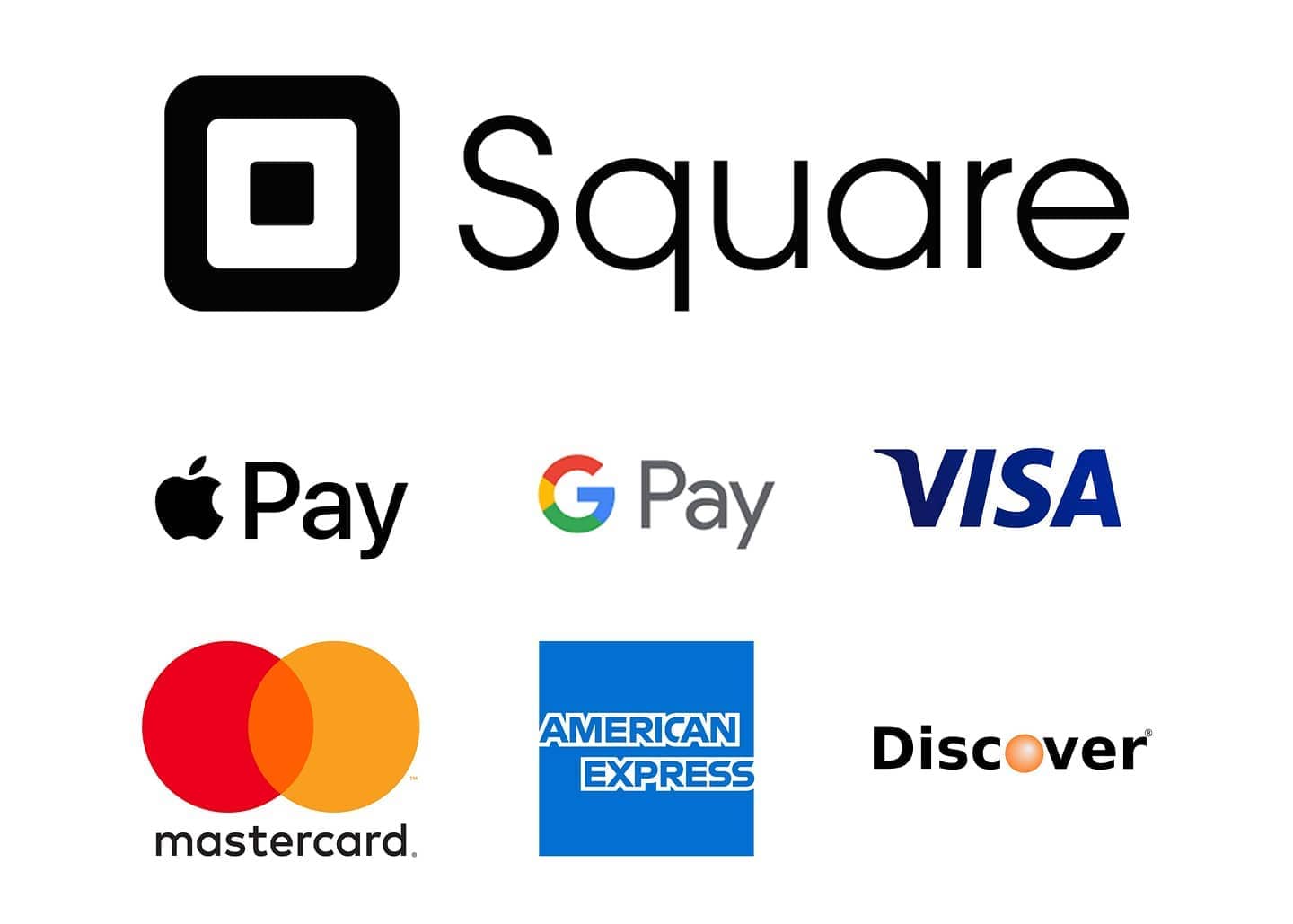
Jack Dorsey, the co-founder of Twitter, founded Square in 2009, which gave retailers a way to accept money online without the use of bulky POS hardware. Its unique capacity to accept both in-person and online payments without setup or startup costs and its free mobile card reader made it the best option for brick-and-mortar businesses.
In spite of the fact that Square accepts all major credit cards as well as other payment types such as Apple Pay and Google Pay, it doesn’t accept PayPal, one of its major competitors.
Nonetheless, it can accept payments by web, invoice, or over the phone, as well as process ACH and electronic checks payments.
Square’s best feature is its easy setup. Using a mobile credit card reader Square offers for free, and users are able to take payments using the software on any iOS or Android device.
It is the ideal solution for mobile merchants like food carts, farmer’s markets, craft booths, and other small businesses that accept credit card payments.

Braintree started out in 2010 as a payment platform but was acquired by PayPal in 2013 and now accepts in-store and online payments. The reason we selected it as the best platform for startups is that it features a simple pricing structure, accepts all major forms of payment, and is easy to use.
Although Braintree lacks a lot of new and exciting features, its simplicity makes up for it. Integrates with most major e-commerce platforms, invoice software, analytics applications, and much more. It also features a sleek interface that creates a seamless checkout experience on any website.
Despite being an affiliate of PayPal, Braintree offers merchant services and accepts all major credit cards, electronic wallets, ACH transfers, Venmo, and PayPal in more than 130 currencies. Additionally, it offers automatic account updates, recurring billing, a customer information manager, encryption tools, reporting tools, and fraud prevention tools.
With Braintree, you can accept payments in-store using a mobile app and PayPal Here card reader, create personalized checkout flows, reward your customers with loyalty programs, and securely share customer and payment data with trusted partners through Braintree Vault.
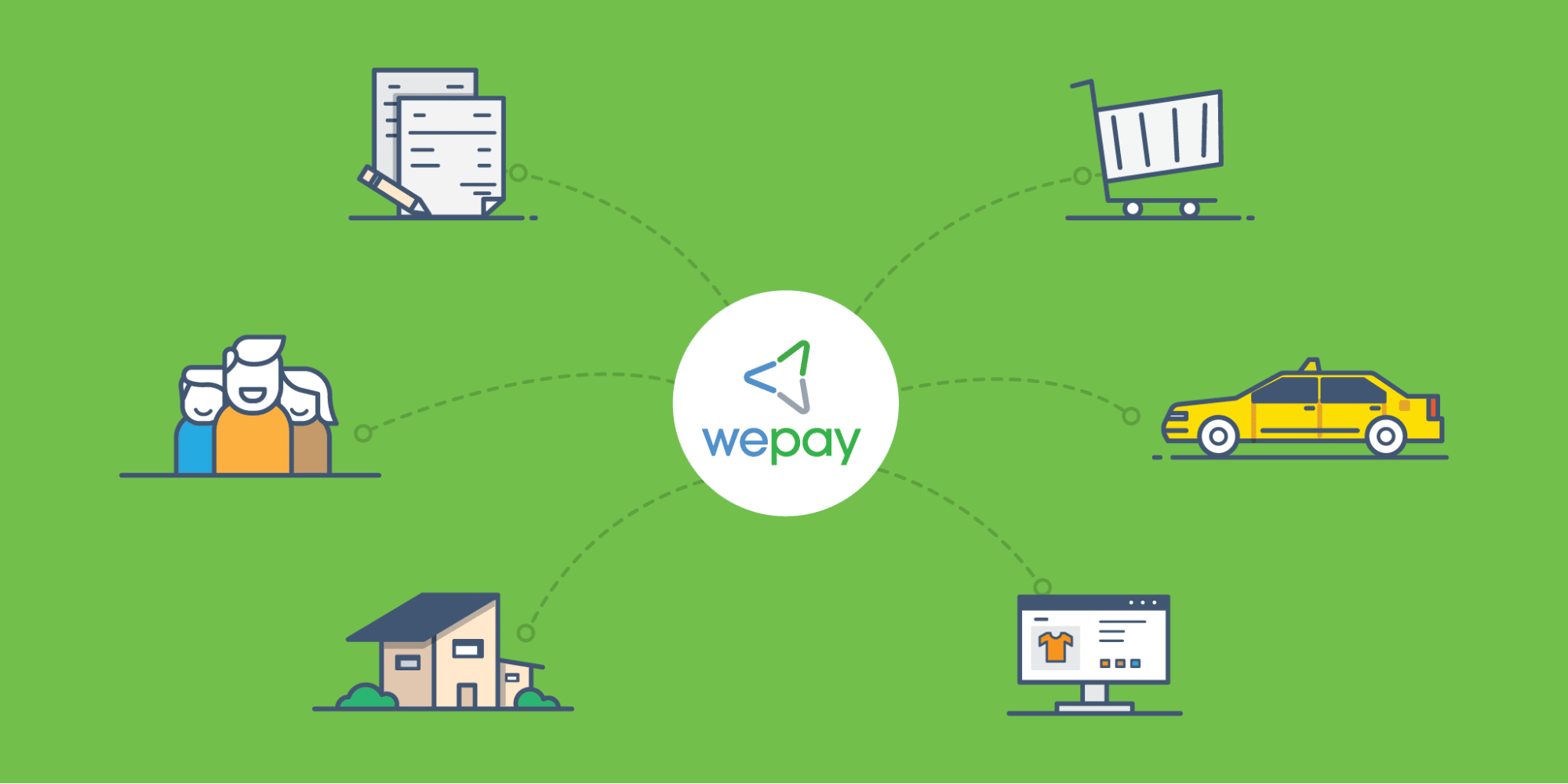
In 2008, WePay was first designed as a peer-to-peer payment platform but now incorporates a payment gateway integrated through Chase Merchant Services.
This payment system is the best for multiple channels since it is easy to use across various platforms and enables merchants to manage complex payment requests.
In addition to all major cards and Chase Pay, WePay also accepts ACH payments, and it can handle complex payment requests, including crowdfunding campaigns and multiple payers. With just an email address, merchants can set up and start accepting payments right away.
WePay’s customization capabilities make it particularly useful for omnichannel marketing. It is possible for merchants to set up customized checkout flows to accept payments and refunds both online and in-person.
Through WePay’s APIs, developers can build anything from simple payment links to bank deposit reports and same-day deposits using Chase Merchant Services.
Despite not offering pricing on its site, third-party research shows that WePay offers competitive rates of 2.9% plus $0.30 per transaction and processes ACH payments for 1% plus $0.30 per transaction.
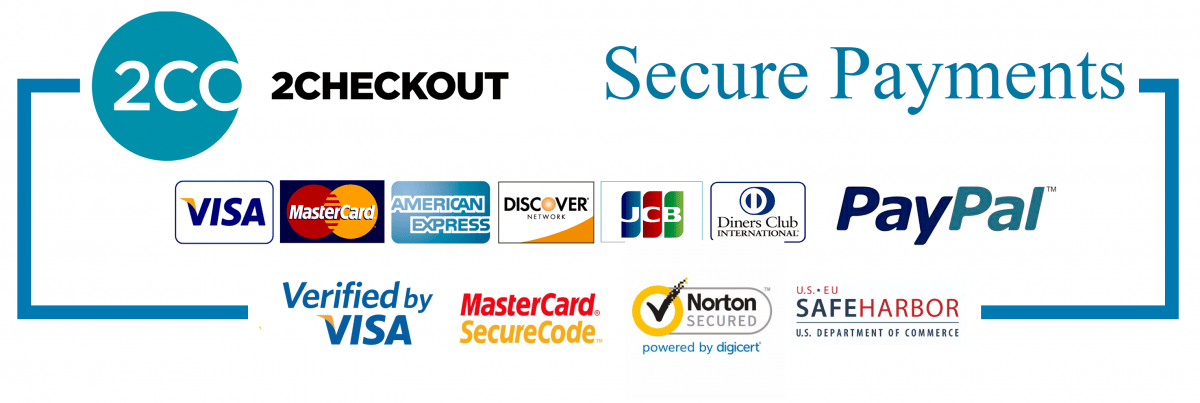
2Checkout was established in 2006 to enable companies to accept online and mobile payments from customers around the world. The company serves over 20,000 customers worldwide.
The reason we believe it’s the best platform for international sales is that it offers localized shopping experiences for customers in nearly 100 currencies and over 200 countries and territories.
Payments can be made using a 2Checkout payment gateway called 2Sell, which accepts most credit cards and payments, including MasterCard, Visa, American Express, JCB, and PayPal. Payments can also be made in nearly 30 languages and 100 different currencies.
Customers can create their checkout pages, set up recurring transactions, and generate reports on payment histories. Users can also integrate the platform with numerous eCommerce platforms, shopping carts, and invoicing systems.
As well as selling products and services, 2Checkout lets merchants take care of subscriptions and keep customer information up-to-date through a user-friendly account manager. Besides providing mobile-friendly localized shopping experiences, coupons, and discount coupons, it also comes with shopping cart templates and tools to facilitate conversions.
Users can also get instant insights into customer metrics and sales using the 2Checkout commerce dashboard.
If you have a Travel Agency Website for flight, hotel, holiday, hostel, motel, resort, tour, trip, etc. booking then you should go with Traffil – a Travel Booking Affiliate WordPress Theme designed for all kinds of Booking, Tourism, and Travel.
Throughout this post, we analyzed over a dozen different payment gateways. Our top picks were providers who supported a wide variety of payment methods.
Because not all businesses need to offer their customers every possible payment method, we balanced these features against the costs.
Our review also considered integrations, and we chose software that could easily be integrated with major e-commerce and POS systems.
Furthermore, since the benefits a payment gateway can provide a merchant can be negated if customers feel uneasy sharing their personal information, we looked for payment gateways with a strong reputation and security features.
Businesses are looking for easier ways to sell, and customers are looking for easier ways to pay, so payment gateways will provide them with the security they both need.